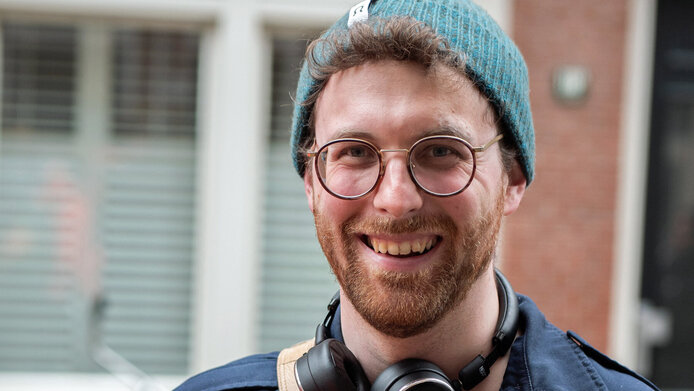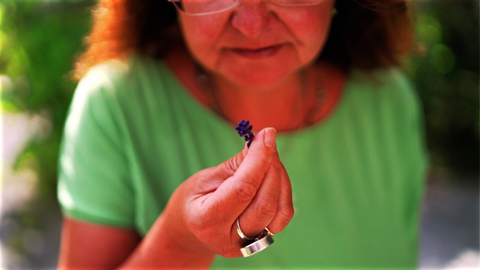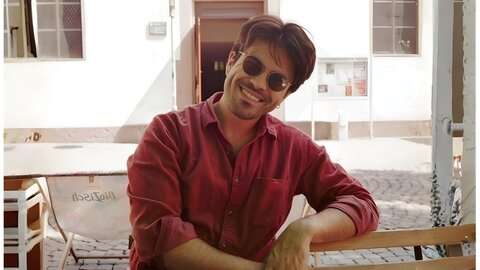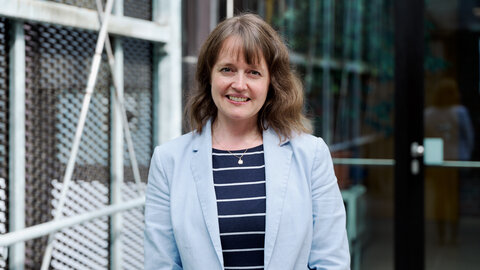AI vs. democracy

On 1 August 2024, the EU Artificial Intelligence Act entered into force. The world’s first cross-border legislation of this kind, it sets clear priorities and standards for the use of artificial intelligence with the aim of furthering ethical and transparent innovations. “An important part of the regulations concerns the reproducibility of decisions, which also solves the question of accountability,” says Jan Maly. For the mathematician and computer scientist, AI and its use pose the most intriguing questions in his discipline at the moment.
The AI Act has made the EU an international pioneer in the realm of responsible AI use. The new law is intended to bring legal certainty to economic stakeholders in both private and public sectors. It is also expected to boost the development of people-centered and trustworthy AI systems while simultaneously ensuring a high degree of protection of health and safety and fundamental rights including democracy, rule of law, and environmental protection.
Jan Maly studied math and philosophy in Würzburg, Germany. He completed his doctorate in computer science at TU Wien. At the end of 2024, the researcher was awarded the “netidee SCIENCE” prize for his research on fairness in online decisions, which he is conducting at WU Vienna.
AI for the good of society?
But how can a democracy control the outputs of artificial intelligence? How can we make sure that the many everyday-life decisions that are already now being made by AI systems really benefit society at large? “And that’s what brings us to highly philosophical questions regarding the meaning of ‘benefit’, the values society upholds, and who gets a say in all of this,” Maly says.
Digital democracy network
The co-founder of the European Digital Democracy network is convinced that there is no way around interdisciplinary collaboration with colleagues from the fields of philosophy as well as the political and social sciences to jointly work out the answers. The network was established to bring together researchers and practitioners wishing to actively work on and with digital democracy. Its first conference held in Rotterdam in April 2024 attracted more than 60 participants from academia and business practice.
Fair online decisions
In late 2024, Maly received the „netidee SCIENCE“ award for his current work on fairness in online decisions. The prize, which is endowed with about 400,000 euro, funded by the Internet Foundation, and awarded by the Austrian Science Fund (FWF), will enable the researcher to develop mechanisms that help groups make fair decisions in the digital sphere.
Minorities are not being heard
As the social dimension of internet-based applications is growing, decision-making processes in the online world also gain importance. More and more often, groups use various online tools to make decisions. This includes deciding on rules an online community agrees to adopt, which can, for instance, govern which opinions or contents are supported. But also in the analogue world, decisions are increasingly made with the help of online tools, from scheduling meetings to organizing large-scale digital participation processes.
“Most group decisions made online are based on a simple majority. Such plain and non-representative decision-making processes are the reason why minority opinions are not heard in many online communities. They further aggravate filter bubble effects and keep members of minorities from participating in online discussions because they are simply not heard,” the researcher at the Vienna University of Economics and Business says.
Reducing polarization
Maly explains this dynamic based on the example of comments left in online newspaper forums. “The comments shown to users are those with the most upvotes, which means that less popular minority takes are not depicted.” Maly wants to reduce polarization and help minorities gain better representation in the political discourse through his work.
Participatory budgets
Maly, who completed a master’s in mathematical logic at the University of Vienna, first looked into the research field of computational social choice, which deals with decisions made on digital democracy platforms, among other things, in the course of his doctoral studies. In 2021, he made use of a scholarship in the framework of the FWF’s Erwin Schrödinger program to join one of the leading research groups in this field in Amsterdam and investigate fairness and proportionality in participatory budgeting. In this citizen participation process, a city’s inhabitants get to decide how the communal budget is allocated.
A revolutionary idea from Brazil takes the world by storm
The idea of participatory budgeting was first introduced by the Partido dos Trabalhadores, a leftist workers’ party, in the Brazilian city of Porto Alegre in 1989. From there, this at the time revolutionary idea quickly spread around the world from the 1990s on. In Brazil, citizens could decide on how the budget should be allocated to fields such as education, the police force, health, etc. And their decisions turned out to be quite smart: “Studies show that, for instance, child mortality decreased by 11 percent,” Maly shares.
In the West, this concept morphed into a new and more structured form, in which citizens can propose projects, which everybody later votes on by paper or online ballot. “It’s a widely used concept. In Europe, Paris has the largest participatory budget at 80 million euro,” Maly shares.
Children decide on one million from the city budget
Vienna introduced the “Participatory Children’s and Youth Million” in 2021: a participatory budget that citizens aged five to 20 years old can vote on. Children, school classes, kindergarten groups, and associations can submit their ideas online. “Young Vienna”, a card game, was developed to facilitate the process in which participants jointly develop ideas in a participatory, playful, and democratic way.
All submitted projects are checked and selected through an online vote. Successful projects then receive funding of up to one million euro for their implementation. In 2024, these funds were used to offer free sanitary products to female pupils as well as for free swimming lessons. “In the West, it’s often about city improvement measures and infrastructure projects such as pedestrian zones. The concept’s revolutionary potential has somewhat gotten lost along the way,” Maly comments.
Fairness regarding equal shares
Maly’s research approach included investigating participatory processes in a broad context, spanning several years and the entire city. Having done so, he discovered that some questions had remained unanswered, for instance regarding the definitions of fairness and commensurability in a proportional election system. “If an interest group accounts for ten percent of the population, it should be able to allocate ten percent of the budget. So we looked into this rule pertaining to fairness, the so-called method of equal shares,” the computer scientist recounts.
For a couple of years, he has observed a stronger push in the community to convince city governments to adopt this approach. He mentions Wieliczka, a city in Poland that has had a participatory budget for ten years, as an example. Due to the introduction of the method of equal shares, a small village at the outskirts that is officially part of the city but only houses five percent of the population now actually gets five percent of the budget. “This acknowledges that this small group, this small village, has its own needs, and now they get a chance to realize their own projects,” Maly says.
Fairness in the online sphere
But how can fairness work in the less orderly online world, which seems to operate according to its own peculiar logic? This question, which is far from trivial, is at the center of Maly’s research project. He has identified two fundamental issues: For one thing, users do not see all comments (to stick to the example used above) but only a selection and can therefore only vote on this part. And for another thing, there is a lot that science does not yet know about these users. The researcher tackles this challenge with an approach rooted in logic-based artificial intelligence. “We use methods of argumentation theory to identify opinion clusters, and then represent users via these clusters,” he explains.
Opinion clusters
The machine learning software he currently uses is not ideal for the expert insofar as it is not clear what the program is actually doing, so that it is impossible to guarantee for fairness. “We are trying to come up with a system which ensures that opinion clusters supported by ten percent of the users are depicted in a representative way,” Maly says, adding that they still have to figure out how to deal with “dislikes”: “If ten percent like a comment, and ninety percent hate it, is it still okay to use this comment to represent the ten percent? How do you offset positive against negative emotions? We still need to find a good solution for that.”
Realistic dreams
Jan Maly has no doubt that the algorithms he is developing together with his colleagues could be used for social media. “But it’s unlikely that Facebook will agree to use our algorithms, which are more just, when this would mean 100 million euro less in profits as there are huge economic interests tied to these filter bubbles.” This is why he thinks it would be a more realistic application scenario for his research output to use it in areas such as comments in online media. “I would love a button that says ‘Show me a representative sample of comments’ to get myself an overview of what people really think,” Maly describes his “realistic dream”.
Federated social media
The researcher thinks that a current development in the US is reason for optimism: the so-called federated social media platforms such as Blue Sky, which break the monopoly. “If I don’t see a platform as a good fit anymore because it creates filter bubbles, I can move my account and bring all of my data. You can program your own client, which could then, for instance, use our methods to keep the number of filter bubbles in discussions low. This is a great opportunity for new and creative online discussions,” Maly says.
In his work, he strives to develop open-source methods that he will be able to offer for free and that are easy to implement in the backend. “We could give future developers of new social media platforms the means to implement our methods in an extremely simple way,” he says. His enthusiasm about the competition among social media platforms that has been created by the federated social media is tangible.
La dolce vita, Viennese style
Born in Nuremberg in Germany, Jan Maly appreciates the high quality of life in Vienna: “Austrians are just as ambitious, but they know much better than the Germans or Dutch people how to enjoy life,” he says with a smile. “They’ll happily spend three hours in a coffeeshop, reading the newspaper. After all, it broadens your horizon to also focus on things other than your long to-do list.”
AI: major questions for society
Maly, who now considers Vienna his home, believes that the current major questions of his discipline (and fields far beyond that) are related to the use of artificial intelligence. Already today, algorithms govern many parts of our daily lives, and AI will only increase this trend. “How do we make sure this happens in a way that benefits society, and how do we even decide what it means to benefit society? These are the large and important questions that we have to tackle in the years ahead,” the expert says.
But what kind of influence can the EU’s AI Act actually yield when AI is mostly developed in the US? Based on what he’s seen at conferences such as the AAAI, the largest AI conference in the world, he thinks that there is already an awareness of the necessity of regulation in research as much as in politics. “I believe that with AI, as opposed to the development of social media, we have become aware of the need for regulation much earlier. At least that’s the case in top research, where the people who end up working for companies such as Google are trained. I think there is a move in the US to closely follow what’s happening in Europe and work out regulations as well,” he says with optimism.
Personal details
Jan Maly studied math and philosophy at the University of Würzburg before specializing in mathematical logic at the University of Vienna and later completing doctoral studies in computer science at the Technical University of Vienna. In late 2024, he received the “netidee Science” award from the Internet Foundation, bestowed once a year by the FWF, for his research project on fairness in online decision-making, which will be carried out at the Vienna University of Economics and Business. Maly is also the co-project lead of the WWTF project „Citizen-Centered Democratic Innovation: Understanding Citizen Preferences for Participatory Budgeting Algorithms“.
Maly is also a co-founder of the European Digital Democracy network, which aims to bring researchers from a wide range of disciplines, such as computer science, philosophy, political and social sciences, together with practitioners to actively work on and with digital democracy. In 2021, an Erwin Schrödinger scholarship allowed him to investigate fairness rules for participatory budgeting at the University of Amsterdam. The 35-year-old researcher wants to reduce polarization and help minorities gain more representation in political discourse through his work.







